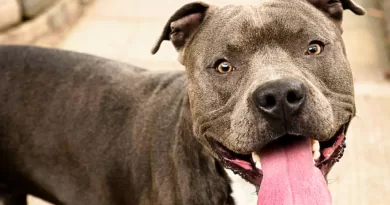Handling Dog Diarrhea and Frequent Urination
Almost every dog owner has experienced those panic-inducing moments when their beloved canine companion exhibits symptoms like diarrhea or excessive urination. The immediate thought process tends to oscillate between mild and severe reasons. But understanding the why’s and how’s behind these common issues can significantly help in administering the right care and taking timely action. Let’s delve into unraveling the potential causes behind your dog’s diarrhea and excessive urination, which can range from diet abnormalities and parasites to severe conditions like pancreatitis, diabetes, liver or kidney disease. Moreover, we will also discuss useful home remedies and when it’s vital to involve a professional vet’s intervention.
Understanding Dog Diarrhea and Excessive Urination
Understanding Dog Diarrhea and Excessive Urination
Dog diarrhea and excessive urination can be caused by a wide range of factors from simple dietary changes to more serious underlying health issues. It’s important to be cognizant of your dog’s habits to successfully identify the possible root of the problem.
Dietary Changes
One of the most common causes of dog diarrhea is a sudden change in diet. This could be due to new food, an unusual treat, or eating something inappropriate such as garbage or toxic plants. If the diarrhea is mild and your dog is otherwise acting normal, this could be the culprit. However, persistent diarrhea needs veterinary attention.
Parasites and Viral Infections
Parasites such as worms or giardia can cause diarrhea in dogs. Viral infections like parvovirus or coronavirus are also potential causes. These conditions typically come with other symptoms such as weight loss, vomiting, or a change in appetite and require veterinary treatment.
Serious Diseases
Diarrhea and excessive urination can be signs of more serious diseases as well. Conditions like pancreatitis, liver disease, and kidney disease might cause these symptoms. These diseases often have additional signs such as loss of appetite, lethargy, jaundiced eyes or gums, or abdominal pain.
Diabetes in Dogs
Diabetes is another condition in dogs that causes excessive urination and can sometimes lead to diarrhea. This disease occurs when the dog’s body doesn’t produce enough insulin resulting in high blood sugar levels. Other symptoms include excessive thirst, weight loss despite normal or increased eating, an unusually sweet-smelling or fruity breath, lethargy, and recurrent bladder infections.
When such symptoms appear, immediate veterinarian attention is crucial to avoid complications.
Understanding the Basics Can Save Lives
While diarrhea and excessive urination in dogs can be due to less severe issues like dietary changes or parasites, they can also signal serious conditions like pancreatitis, liver disease, kidney disease, or diabetes. Understanding the most common reasons behind these symptoms is important to ensure your dog receives necessary treatment in time. If any severe symptoms are noticed, always contact your vet immediately.

See Also: Boys And A Dog Homemaking Homeschooling Tips For Busy Folks
Effective Home Remedies and When to See a Vet
Understanding Your Dog’s Condition: Diarrhea and Excessive Urination
If your dog suddenly begins to suffer from diarrhea and urinates a lot, it can be a cause for concern. While these symptoms could be a result of various factors, like dietary changes, illnesses, or even stress, it’s essential to monitor your dog carefully and assure it is not severe dehydration or an indication of a larger medical issue.
Home Remedy 1: Dietary Modifications
Begin by observing your pet’s diet. If you’re giving them human food or they have access to it, it’s time to stop. Human food can contribute to diarrhea in dogs. Instead, provide them with boiled chicken and rice for a few days—this bland diet will help calm their digestive system.
Home Remedy 2: Regulating Water Intake
Always ensure your dog has access to clean, fresh water. Increased urination can lead to dehydration very quickly, which can further complicate their health. There is no specific requirement for the amount of water intake as it depends on the size, breed, and activity level of your dog. However, a general rule of thumb is that dogs need about one ounce of water per pound of body weight per day.
Home Remedy 3: Over-The-Counter Solutions
Another method to address your dog’s diarrhea is over-the-counter solutions. Medications like Imodium or Pepto Bismol can help, but it’s crucial to use them under the vet’s recommendation only. It’s also essential to start with the smallest recommended dose and monitor your pet’s reaction closely.
Recognizing When to Seek Professional Assistance
While home remedies can be effective, it’s crucial to understand when it’s time to seek professional help. This call becomes needed in the following scenarios:
- If the diarrhea persists for more than two days
- If your dog becomes lethargic or vomits repeatedly
- If your dog is a puppy, has a health condition, or is old – they are more vulnerable and should be taken to a vet right away
- If you see blood in the stool or if the dog appears bloated
It’s crucial to be observant and proactive about your dog’s health. Remember, home remedies can help manage minor issues or symptoms, but a vet should handle severe or persistent problems.

The world of pet ownership comes with its fair share of ups and downs. Diarrhea and excessive urination in dogs are typically such challenges that can introduce uncertainty and anxiety. However, with the right knowledge and the potential treatment options at your disposal, you can navigate these hurdles with relative ease. Understanding the possible causes, exploring practical home remedies, and recognizing the critical point when professional help is needed are all part of the package. Remember, when it comes to your cherished pet’s health and well-being, knowledge and timely action are the best forms of love you can offer. So, equip yourself with valuable insights and ensure that your furry friend leads an active, healthy, and comfortable life.
Enjoyed this Article? You May Also Like:



